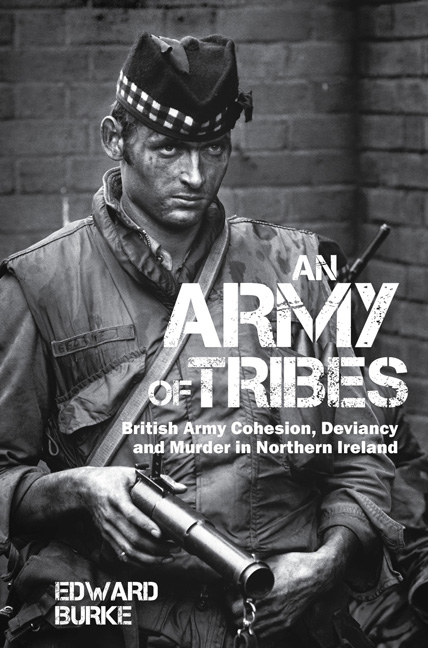Book contents
- Frontmatter
- Contents
- Preface
- Acknowledgements
- List of Abbreviations
- Maps
- Introduction
- 1 The British Army Before 1971
- 2 The Political and Operational Environment in Northern Ireland, 1969–1972
- 3 The Scots Guards and Argyll and Sutherland Highlanders Regiments in Northern Ireland, 1971–1972
- 4 Murder: The Killing of Michael Naan and Andrew Murray
- Conclusion
- Bibliography
- Index
Preface
- Frontmatter
- Contents
- Preface
- Acknowledgements
- List of Abbreviations
- Maps
- Introduction
- 1 The British Army Before 1971
- 2 The Political and Operational Environment in Northern Ireland, 1969–1972
- 3 The Scots Guards and Argyll and Sutherland Highlanders Regiments in Northern Ireland, 1971–1972
- 4 Murder: The Killing of Michael Naan and Andrew Murray
- Conclusion
- Bibliography
- Index
Summary
In July 2012, I decided to walk on or close to the 303 miles of the Irish border for charity. I had recently returned from a year and a half in Afghanistan, where security restrictions and high fences had limited my movements. I was rewarded with walks along twisting boreens arched with canopies of ash, scrambles over sentinel hills such as Cuilcagh or Slieve Gullion and long pauses at the dark, still loughs of the Ulster marches. Battle sites were also strewn across my path: I walked through or past places such as the Barnesmore gap, Benburb and Moyry pass. These were often remarkably serene places. It is very difficult to find anything but peace at ‘Bloody Pass’, the Upper Lough Erne site of a massacre of Jacobite soldiers after the Battle of Newtownbutler in 1689. I was treated with an immense kindness and not a little curiosity during my hike along the border. In quieter moments people would relate to me some darker stories. Standing on a wind-stripped hill in west Tyrone, a Catholic farmer told me how his only neighbour, serving in the local Ulster Defence Regiment battalion, would lie in wait at night in a field behind his house to taunt his elderly mother with sectarian abuse. Grievance and violence in such a setting were extremely intimate, with complicated, often highly localised, motives. As I walked and tried to get my head around such accounts, I became increasingly curious as to how British soldiers made sense of such a political and social landscape, what were the accepted narratives and ‘truths’ that enabled them to function, to do ‘a job’ and emotionally respond to casualties during this most violent of periods in the recent Troubles? Too often, at least in Irish Nationalist narratives, the British Army has been unhelpfully demonised; atrocities inevitably lead to the top and everything was planned from the outset. The divergent motivations, experiences and emotions of soldiers in different units are lost in such accounts.
An iconic image of the British Army in Northern Ireland in 1972 is that of a Scottish Highlander, his glengarry hat sloped to the side of his head, left thumb in his belt, tear gas gun cocked by his right hip, and all the time glowering at a crowd.
- Type
- Chapter
- Information
- An Army of TribesBritish Army Cohesion, Deviancy and Murder in Northern Ireland, pp. vii - xPublisher: Liverpool University PressPrint publication year: 2018



